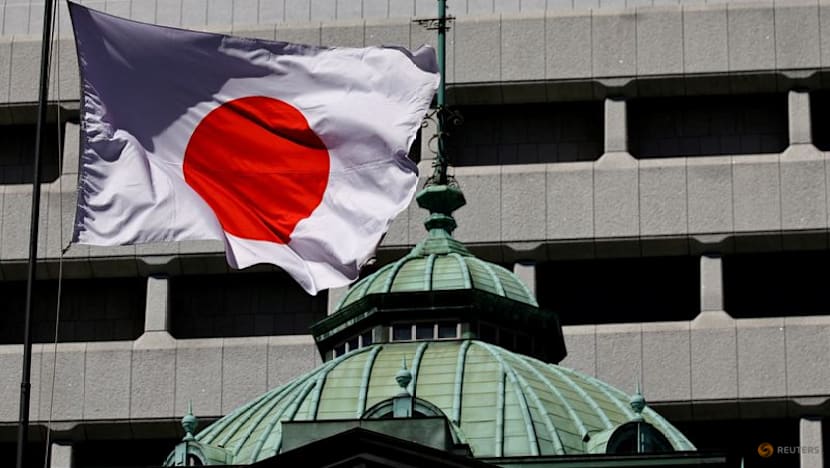Bank of Japan to consider best timing for next rate hike

FILE PHOTO: The Japanese national flag waves at the Bank of Japan building in Tokyo, Japan March 18, 2024. REUTERS/Kim Kyung-Hoon/File Photo
TOKYO :The Bank of Japan is likely to debate next week whether conditions are ripe to resume rate hikes as worries about a tariff-induced recession ease, though political complications may keep it on hold for now.
Data so far has shown little evidence that higher U.S. levies were hurting the economy with exports rising in September, business confidence improving in the third quarter and companies maintaining bullish spending plans.
But most analysts expect the central bank to keep interest rates steady at 0.5 per cent at the October 29-30 meeting given jabs from new Prime Minister Sanae Takaichi, who has called for BOJ cooperation in achieving inflation driven more by wage gains.
In a speech earlier this month, BOJ Governor Kazuo Ueda also warned of risks clouding the outlook, such as uncertainty over the U.S. economy and the hit to growth from tariffs that is seen intensifying ahead.
"With U.S. economic data not coming out due to the government shutdown, I don't think Ueda's concerns would be dispelled by next week's meeting," said Naomi Muguruma, chief bond strategist at Mitsubishi UFJ Morgan Stanley Securities.
"It's also hard to believe the inauguration of Takaichi's administration won't have any impact on the BOJ's rate-hike timing," she said.
But Ueda may face growing calls from within his board to pull the trigger with stubbornly high food prices, prospects of sustained wage gains and receding fears of U.S. recession convincing some that conditions for a hike are falling into place.
Two hawkish members, Naoki Tamura and Hajime Takata, are likely to repeat their proposals made in September - and voted down by the nine-member board - to hike rates to 0.75 per cent.
Accounts of the BOJ's July and September meetings showed the board leaning toward a near-term rate hike with discussions focused on broadening inflationary pressure.
"The BOJ may already be somewhat behind the curve in addressing inflationary risks, which is causing some distortions in the economy," former BOJ executive Eiji Maeda told Reuters.
Another complication could come from recent yen declines, driven partly by market expectations that pressure from Takaichi will slow the pace of BOJ rate hikes. Some analysts bet the BOJ could hike rates if yen falls accelerate, as such moves would push up import prices and accelerate inflation.
U.S. President Donald Trump will visit Tokyo next week accompanied by Treasury Secretary Scott Bessent, who has repeatedly signaled his preference for a stronger yen and tighter monetary policy in Japan.
Japan's new finance minister Satsuki Katayama said on Friday she plans to meet Bessent during his stay in Tokyo next week.
The BOJ last year exited a decade-long, massive stimulus programme and raised short-term interest rates to 0.5 per cent in January on the view Japan was close to durably hitting its 2 per cent inflation target. It has kept policy steady since then.
A majority of economists polled by Reuters expect the BOJ to raise rates in the fourth quarter, while nearly 96 per cent of them expect borrowing costs to increase by end-March.
In a quarterly outlook report due on October 30, the BOJ is likely to slightly revise up its economic growth forecast for the current fiscal year and maintain its view the economy is on course for a moderate recovery, sources have told Reuters.
The board may discuss changing language on the course and timing for when underlying inflation is likely to approach its target reflecting the views of hawkish members Tamura and Takata.
In the current report issued in July, the BOJ said it expects underlying inflation to hit 2 per cent in the latter half of the three-year projection period through March 2027.
Tamura said last week the target could be achieved earlier at around the latter half of fiscal 2025, while Takata said Japan has already roughly achieved the BOJ's inflation target.













